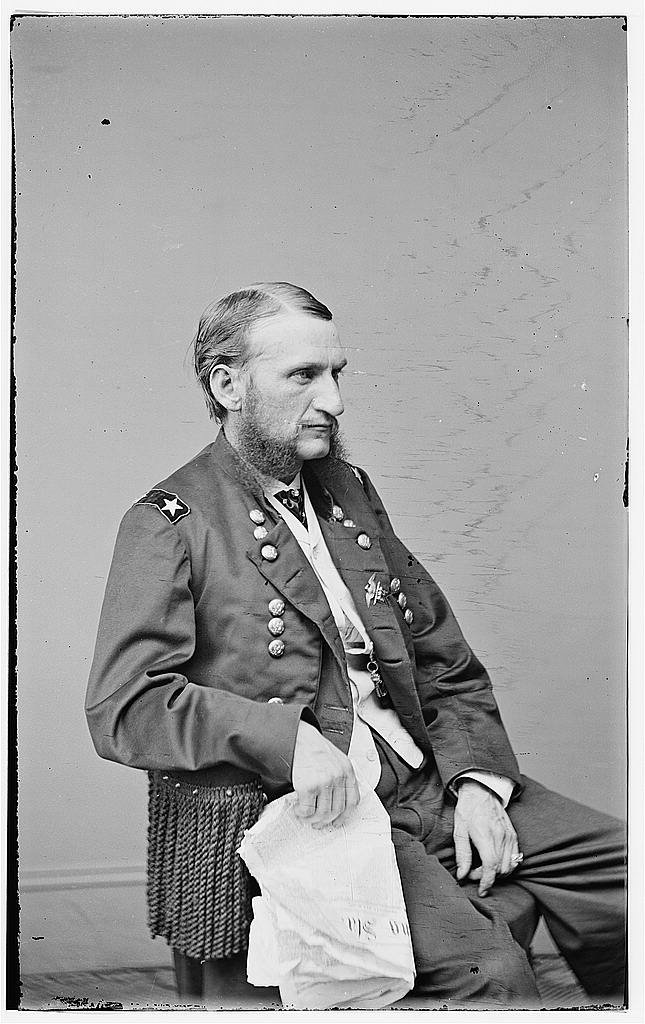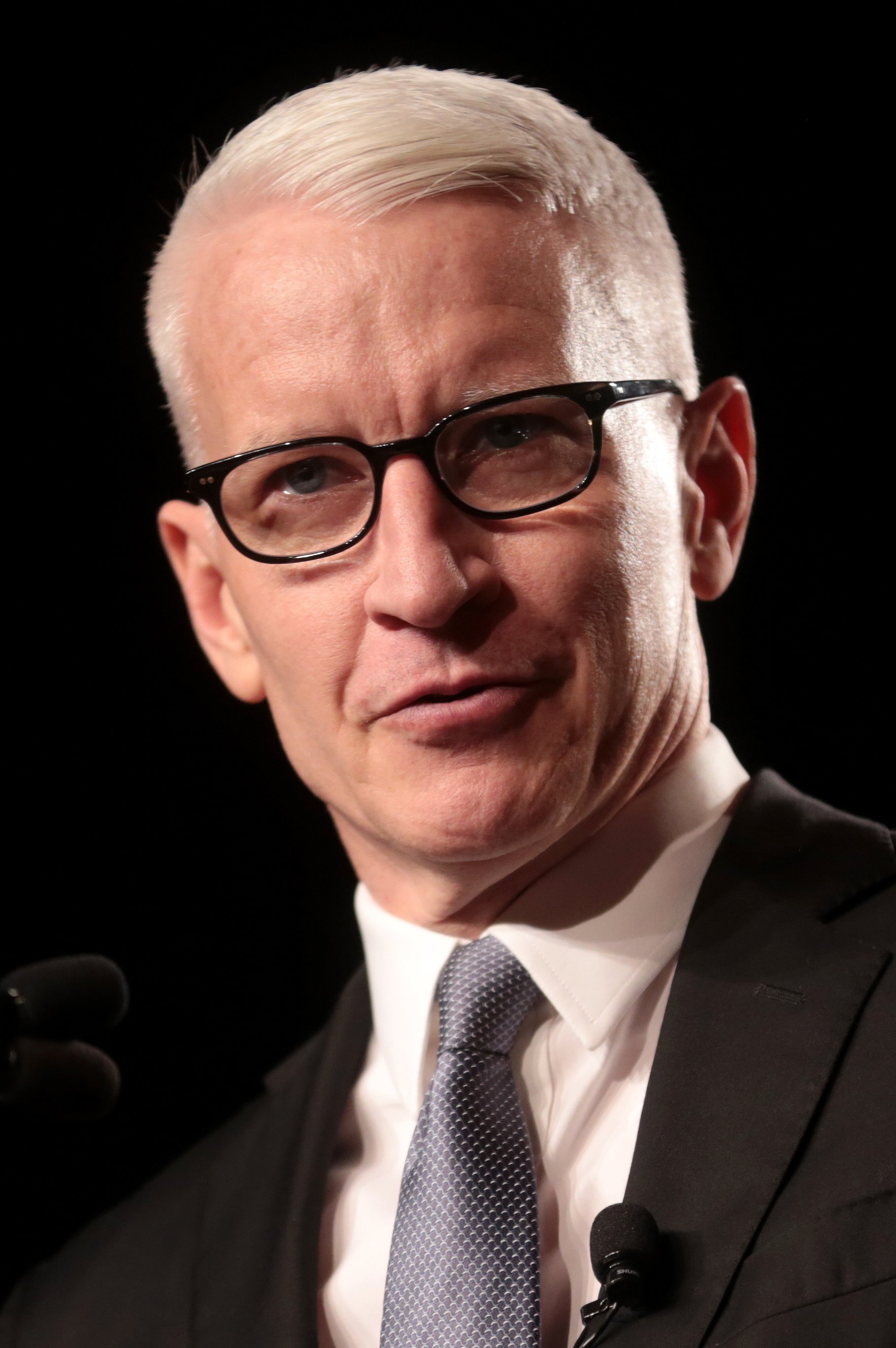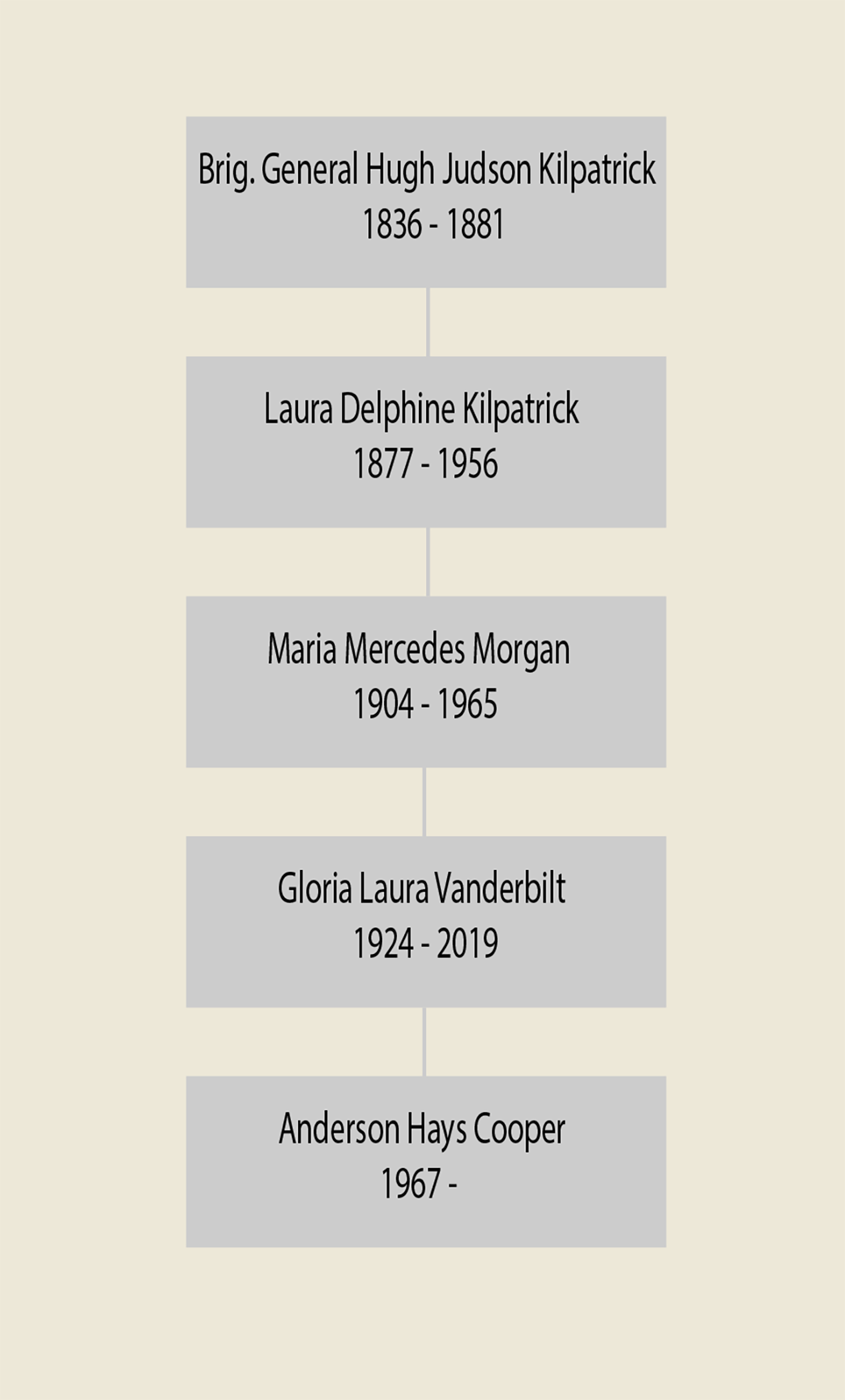Civil War Ancestors: Brigadier General Judson Kilpatrick
“The dapper and amiable newsman Anderson Cooper bears little resemblance to his famous Civil War general ancestor”
A Harper's Weekly depiction of Judson Kilpatrick's raid through Virginia.
Anderson Cooper is one of the most well-known news anchors of our time. He comes from a family of famous people; his mother, Gloria Vanderbilt, was born into American royalty as the granddaughter of Cornelious Vanderbilt, the railroad and shipping magnate. She was known for her jet-setting lifestyle and fashion line. Anderson's maternal lineage can be traced to his great-great-grandfather Brigadier General Judson Kilpatrick. After her mother lost custody of her in a famous tabloid soap opera, Gloria Vanderbilt was raised in part by her grandmother, Laura Delphine Kilpatrick, the daughter of the famed Civil War general.
Unlike his ancestors who followed, Hugh Judson Kilpatrick was not born into wealth. He was born in 1836 on a comfortable family farm in Sussex, New Jersey, descended from one of the town's founders. Despite his lack of height - it's rumored he was only slightly taller than five feet - Kilpatrick entered the West Point Military Academy in 1856 and was part of the graduating class of 1861, which was accelerated to meet the crisis of the spring of 1861.
After graduating from the academy as a 2nd Lieutenant, Kilpatrick suffered a combat wound at Big Bethel on June 10, 1861, becoming the first regular army officer to do so. Kilpatrick returned to Sussex to recover from his wounds while recruiting his own cavalry regiment. By September 1861, he wore the oak leaf of a Lieutenant Colonel of the 2nd New York Cavalry Regiment. During the Battle of Second Bull Run, Kilpatrick ordered a rare nighttime cavalry charge, which resulted in him earning the nickname "Kill Cavalry" due to his audacity, arrogance, and brashness. Unfortunately, he lost part of a squadron during the daring charge.
In an officer corps overflowing with arrogance, Kilpatrick's self-confidence irked many of his brother officers. William Tecumsah Sherman once referred to him "as a damn fool," but still capable enough to command his cavalry in the March to the Sea. He had a habit of carefully strutting about camphis slouch hat turned strategically askant, his blond sideburns neatly trimmed; he looked the perfect picture of a self-assured gamecock. During the last weeks of the war, General Kilpatrick, who was known in the army as a "ladies' man," was caught off guard when a Confederate cavalry unit raided his camp. Although rumors were circulating that he was spending time with several ladies, Kilpatrick was lucky enough to avoid capture. However, he ended up leaving his trousers behind in a rather embarrassing manner.
At the start of the Battle of Gettysburg, fought between July 1 - 3, 1863, the wild-riding Kilpatrick was given command of a cavalry division. aggressiveness again was on full display as he ordered an ill-conceived attack on the Confederate right; the brigadier who led the charge, General Elon Farnsworth, was killed, and Kilpatrick's nickname was earned, and his fighting spirit brought praise from his grudging superiors.
In early 1864, General Kilpatrick caused further animosity among the officer corps when he proposed a cavalry raid on Richmond to President Lincoln. The plan was approved, and Kilpatrick, aided by a diversionary attack, would lead 3,000 troopers into the Rebel capital to free Federal prisoners of war. However, the diversionary attack never took place, and the ambitious attack failed, resulting in the loss of twenty-one-year-old Ulric Dahlgren's life. Papers discovered on Dahlgren's body reportedly contained dispatches proposing to burn Richmond and assassinate Jefferson Davis. Kilpatrick's command returned to camp sixty hours later, muddied and bloodied, but having achieved nothing, which caused more resentment from the army's high command.
In April 1864, Kilpatrick was transferred to the Army of the Cumberland and led Sherman's advance into Georgia. At Reseca, Georgia, Kilpatrick suffered a severe leg injury, but he recovered quickly enough to accompany Sherman to the burning city of Atlanta in September 1864.
Judson Kilpatrick resigned his commission on December 1 1865, effectively ending his career in the army. After the war he continued in public service, acting twice as minister to Chile; in 1888, he ran for Congress under the Republican ticket but was defeated. It was in Chile that he married his second wife, Luisa Fernandez de Valdivieso (1836 - 1928), a well-connected socialite from a Spanish family who emigrated to South America. The couple had two daughters, Laura Delphine Kilpatrick, was the youngest and would be the grandmother of Gloria Vanderbilt, the mother of Anderson Cooper.
Ambitious to a fault, but courageous in fighting spirit, General Kilpatrick earned lasting enmity among the senior brass of the army, so much so that many post-war memoirs slighted the name of Judson Kilpatrick. Such was the life of Kilpatrick, an egotistical warrior-fighter destined to sire one of the twenty-first century's most famous people. The Anderson Cooper Family Tree




